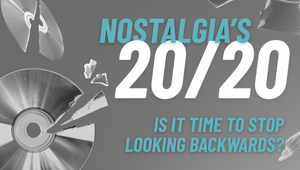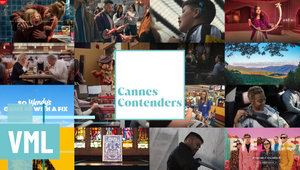
Bossing It: Being Real with Carrie Philpott

Carrie Philpott is the chief client officer of North America and president of Wunderman Thompson Atlanta, bringing 20+ years of multi-channel expertise, customer relationship management, test and learn strategies, and most recently, innovative mobile applications for leading blue-chip clients. She brings a wealth of marketing experience to her role, with experience in digital product design and development, integrated marketing and brand campaigns, media, and analytics.
Prior to Wunderman Thompson, Carrie was the managing director of Huge Atlanta, where she was responsible for driving business growth in the second-largest network office, leading a team of 100+ employees, and clients including Turner Sports, Lowe’s Home Improvement, UPS, PGA of America, CNN, Randstad, and Perfetti Van Melle.
Carrie joined Huge in 2015 after serving as managing director at DigitasLBi Atlanta, where she led the Delta Air Lines team in North America, Europe and Asia Pacific, partnering with the brand across digital and direct marketing, through the line media strategy, buying and optimization, and more. She also led the digital strategy for Children’s Healthcare of Atlanta, one of the leading paediatric hospitals in the country. What’s more, she provided guidance and insights to junior-level employees as a mentor in the national DigitasLBi Mentor program. Carrie joined DigitasLBi in 2000 and served as vice president, group director, senior vice president, and group account director before being named managing director. Her client experience at Digitas also included Equifax, American Express, and Brookdale Senior Living.
We can think of few better brains to pick for some lessons in creative leadership.
LBB> What was your first experience of leadership?
Carrie> I am the oldest of three daughters, so naturally, I have been leading since my toddler days!
LBB> How did you figure out what kind of leader you wanted to be – or what kind of leader you didn’t want to be?
Carrie> I’ve been fortunate to work with leaders who were inspiring - and fortunate to work with leaders who weren’t, because I learned a lot from them too. People who are kind and respectful to their teams, clients, and partners, yet pragmatic relative to business have been those that I have most admired. And humour always helps!
LBB> What experience or moment gave you your biggest lesson in leadership?
Carrie> In business, it was saying no to a client when the work and lack of respect from the clients was hurting our team. Making a tough decision to walk away from money out of respect and care for our people was incredibly scary but ultimately a very empowering moment. And it paid back easily on the other side in morale and ultimately in the team’s ability and hustle to win more.
LBB> Did you know you always wanted to take on a leadership role? If so how did you work towards it and if not, when did you start realising that you had it in you?
Carrie> I think I have always gravitated to leadership. I am driven, competitive and have high standards. Once I entered the work world, I was respectful of titles and my place within an organisation. I remember a pivotal moment with my manager when I was early in my career - I was a newly promoted ‘manager’, but I still felt very junior in the company. My manager said, “You are a leader. People are looking to you, watching you and they will emulate you.” That really hit me because I felt it allowed me to rethink how I operated with and across teams.
LBB> When it comes to 'leadership' as a skill, how much do you think is a natural part of personality, how much can be taught and learned?
Carrie> I believe some people are innately drawn to be a leader, but that’s only the start. So much needs to be learned! Leaders who embrace feedback and make themselves vulnerable to get better are the best leaders. One of the most impactful investments in my career has been working with a coach to help me understand my strengths but more importantly my weak spots and how I need to adjust to be the best leader for my teams.
LBB> What are the aspects of leadership that you find most personally challenging? And how do you work through them?
Carrie> I am highly efficient and can become very operationally driven at the expense of slowing down to think through challenges and consider other points of view. That can come across as cold and impatient if I’m not careful. I am very aware of this, and I work through it with my coach as well as being intentional about making space for others to speak and weigh in. I also carve out time each day for work that isn’t transactional – bigger, thinking, strategic work. And I believe in building trust through experience with people that can extend past each interaction… meaning, if I trust a person, we may not agree all the time, but for the times we don’t, I’ll have their back and push ahead because at times the momentum of a smart, synched, well-balanced leadership team can be more valuable than the individual and tactical points of view.
LBB> Have you ever felt like you've failed whilst in charge? How did you address the issue and what did you learn from it?
Carrie> Yes, all the time. I try to own the failures and make myself vulnerable. One example was when I curated, hired and recruited a leadership team that was highly competent, diverse and balanced in terms of capability but had no trust or comradery. We brought in an outside coach to dissect the problem, and we worked through it, ultimately realising that certain voices were stifled by others who were taking over every conversation. Once we owned this collectively, the dynamic completely shifted. Are you picking up on how much I love coaching?
LBB> In terms of leadership and openness, what’s your approach there? Do you think it’s important to be transparent as possible in the service of being authentic? Or is there a value in being careful and considered?
Carrie> I think there’s a balance required. Transparency and being direct are important values for me and fundamental parts of my leadership approach. But revealing too much can be damaging and can place an undue burden on others. Thoughtful transparency and authenticity would be the language I’d use to describe that balance. I sometimes say, “I’ll tell you everything I can and know. If I can’t tell you something, I’ll say that. If I don’t know, I’ll say that too.”
LBB> As you developed your leadership skills did you have a mentor, if so who were/are they and what have you learned? And on the flip side, do you mentor any aspiring leaders and how do you approach that relationship?
Carrie> I have a few mentors who have helped me, all of whom I have worked for in the past. I stay connected to them, ask for advice regularly and admire the way they’ve approached their careers. We talk as needed, and recently when I texted a couple of them for advice, we were on the phone within an hour! I trust them and their values, and they know me well enough to be direct which I appreciate.
I have a couple of mentees whom I have stayed close with as well. Spending time with them is a highlight of my day/week, and the relationship is easy and incredibly rewarding to me. We don’t formalise it, but I reach out to them, and they reach out to me. It’s mutual and fluid.
And I have a close friend in the industry who is an invaluable sounding board and support system. We are friends first but have a shared career path that has helped me navigate changes, decisions and frustrations.
LBB> It's been a really challenging period in time - and that's an understatement. How do you cope with the responsibility of leading a team through such difficult waters?
Carrie> Early on in spring 2020, I underestimated the impact of talking about the weight and stress of the world on our teams. I had a moment after George Floyd was murdered where I hosted our weekly Monday stand up meeting and barely said a word except to open the floor. I spent the next 45 minutes hearing from colleagues and simply listening, tears streaming down my face (live on screen!) while doing so.
We are in a business, but our business is a people business in all ways. The more we can show people we care while not losing sight of our day jobs, the more we can create a community that gets through difficult things together. There’s no playbook, but being real helps.
LBB> The industry is being confronted with its lack of action/progress on diversity and inclusion. As a leader how have you dealt with this?
Carrie> This continues to be a major focus for our agency, both in recruiting and in employee experience/retention. It’s critical to our business and the quality and stickiness of our creative ideas. We have a very rigorous approach to recruiting – everything from interview and bias training, intentional selection of interview panels, intentional approach to range of candidates, and we have goals around diversity across race, gender and age to get us in closer alignment to the profile of our market. We talk openly about these goals with our teams and share progress regularly.
We’re also fortunate to be a part of a WPP network that has many resources for employees, including Employee Resource Groups and training/coaching. We build on and tap into those often. We’re making progress but we can always do better and will continue to set the standards higher and higher.
LBB> How important is your company culture to the success of your business?
Carrie> I believe culture comes from how we treat each other (core values) and pride in what we make and do for our clients. If people love their work and their team, the rest comes naturally. Talented people doing amazing work and feeling recognized is the culture we are looking to create and maintain.
Remote work is hard, and some rituals have been lost. I do think trust and relationships are harder to build over a screen. We are constantly testing and trying ways to connect, celebrate and ideate – in person, remote and hybrid. Some work, some don’t. But, I don’t think any of it can be forced. Great, talented people doing great work with trust and respect is the culture.
LBB> What are the most useful resources you’ve found to help you along your leadership journey?
Carrie> Relationships with trusted peers with whom I can bounce around ideas, celebrate wins, and share frustrations.
Strong and trusted creative and strategy partners to balance my business mind and force me out of my comfort zone.
Boundaries and limits – no phones at bedtime, family dinners, ability to switch ‘off’ – and encouraging and modelling that for others.
Family and friends to keep me grounded and who value me for me, regardless of me being a leader.
A helpful reminder that a colleague told me early in my career when my stress level was particularly high… “There are no hearts on ice. This is marketing.” That’s not to make light of the importance of our work or the impact it has on people, but it is a reminder to relax, loosen up, and remember that this work should be fun.















